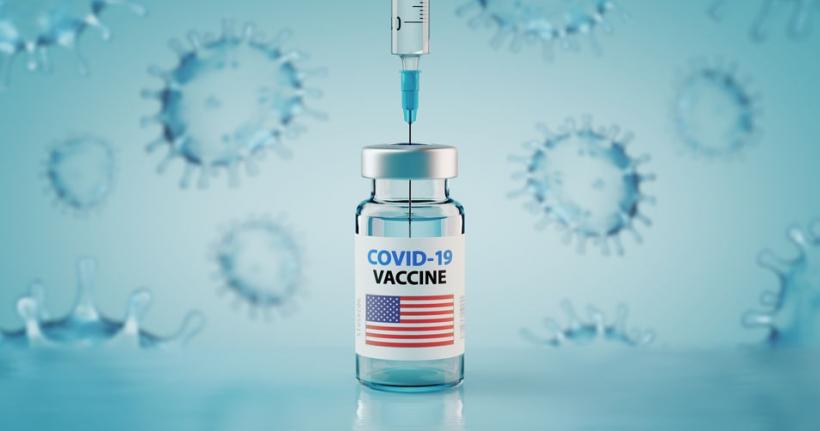
Last Updated: January 21, 2021
As COVID-19 vaccinations began rolling out across the U.S. this winter, many Canadian snowbirds have expressed interest in finding out if they are eligible to receive the vaccine in popular snowbird destinations.
And while this topic has been widely discussed, there is a lot of conflicting - and sometimes inaccurate - information being circulated, creating confusion among Canadian snowbirds as to whether or not they are eligible to receive the COVID-19 vaccine in the U.S. and what the criteria is.
To help provide snowbirds with accurate, authoritative answers about getting vaccinated in the U.S., Snowbird Advisor reached out to a number of official state health departments to clarify their positions on Canadians getting vaccinated for COVID-19 in their state, as well as to snowbirds on the ground with first-hand experience.
Here’s what we found:
Can Canadians get vaccinated in popular U.S. snowbird destinations?
Florida
According to Florida Health, persons 65 and older who are able to provide proof of residency are eligible to receive the COVID 19 vaccine.
The vaccine is available by appointment only and Canadian snowbirds are eligible to receive it with proof of age by driver's license or passport, as well as proof of residency - or part-time/seasonal residency - in the form of TWO of the documents outlined here.*
*The proof of residency requirement was introduced on January 20, 2021, and will be introduced on a county-by-county basis.
Contrary to some rumours that have been circulating, you do not have to own property in Florida to receive the vaccine - age is the only criteria. We have confirmed with some Canadian snowbirds who have already received the vaccine in Florida that the only information they were required to provide was proof of age.
However, appointments are scarce, as there is heavy demand for the vaccine and long-term care residents and health care workers are given a priority in most areas throughout the state.
To receive the vaccine, you must make an appointment through your county health department at a designated location that is administering the vaccine, but these appointments disappear quickly each day.
Vaccination sites come in many forms including urgent care clinics, drive-thru sites, hospitals, etc… and vary depending on your location, but one thing they all have in common is that you MUST have an appointment ahead of time.
While there is no fee for the vaccine itself, which is covered by the US federal government, you may be charged a fee for receiving the vaccine.
Arizona
The Arizona Department of Health Services (ADHS) is responsible for the administration of the COVID 19 vaccination program in Arizona.
There are several phases to the rollout of the vaccine.
- Phase 1A, which includes healthcare personnel, healthcare support occupations, and long-term care facility residents at highest risk of disease and death, including staff at these facilities
- Phase 1B, which includes adults with high-risk medical conditions living in shelters or other congregate settings and essential workers who keep our communities operating and ensure we have the things we need for everyday life such as power, water, food, transportation, or critical services. Workers in educational settings and protective service occupations are prioritized among the essential worker categories; and,
- Phase 1C, which includes adults with underlying medical conditions such as COPD, Diabetes, heart disease, obesity and chronic kidney disease and those 65 years and older, and adults living in congregate settings
A spokesman for the ADHS confirmed to Snowbird Advisor that Canadian snowbirds over 65 are eligible to be vaccinated in Arizona as part of Phase 1C.
In order to register to receive the vaccine in Arizona, you must set up an account online with the Arizona Department of Health Services through their Patient Portal here.
The vaccine itself is free of charge but there may be a fee for receiving it.
Texas
Texas continues to receive doses of the Pfizer and Moderna COVID-19 vaccines, and is distributing statewide to hospitals, pharmacies, local health departments, freestanding ERs and other clinics.
Front-line healthcare workers and residents at long-term care facilities (called Phase 1A) plus people over 65 or with a chronic medical condition that puts them at increased risk for severe illness from COVID‑19 (called Phase 1B) are currently eligible to receive the COVID‑19 vaccine.
Phase 1B recipients include:
- People 65 years of age and older
- People 16 years of age and older with at least one chronic medical condition that puts them at increased risk for severe illness from the virus that causes COVID-19, including but not limited to: Cancer; chronic kidney disease; COPD (chronic obstructive pulmonary disease); heart conditions such as heart failure, coronary artery disease or cardiomyopathies; obesity and severe obesity; sickle cell disease and type 2 diabetes.
According to a spokesman for the Texas Department of State Health Services, long-term Canadian snowbirds are eligible to receive the vaccine provided they qualify according to the above criteria for Phase 1B.
Canadian snowbirds interested in receiving the COVID-19 vaccine in Texas should check this website for further information.
California
California does not have a state-wide registry for a vaccine. Individuals should contact their healthcare provider for access to the vaccine when they are eligible.
However, Snowbird Advisor has been advised by a spokesperson for the California Department of Public Health that right now there are currently no plans to vaccinate people visiting California from outside the state.
California is currently in Phase 1A which includes healthcare workers and residents in long-term care settings. The recommendations for Phase 1B are being finalized and will likely include certain categories of older adults – however, it is unclear whether Canadian snowbirds will be included at that time.
Hawaii
In early 2021, Hawaii will vaccinate the following individuals:
- Essential healthcare workers – high-risk healthcare workers involved in direct patient care and workers who provide transportation, environmental services, and other healthcare facility services and who are at risk of exposure; and residents and staff of congregate long-term care facilities.
- Essential workers – examples include first responders such as police and firefighters, and corrections officers, transportation, education sector, food & agriculture, utilities.
- Adults over 75 years of age.
In the spring of 2021, Hawaii will vaccinate:
- Adults with high-risk medical conditions and
- Adults 65 years and older
According to a spokesperson for the State of Hawaii Department of Health, Canadian winter residents would be eligible to receive the vaccine once it is available for their age group.
South Carolina
South Carolina has begun its vaccination rollout but it has limited supplies and is only vaccinating health care workers, long-term care residents and staff. The second phase in the late winter will include people 75 years of age and older and frontline workers.
The third phase in early spring will include people 65-74 and people over 16 with health conditions that put them in a high-risk group – and other essential workers.
At this time, there is no plan to vaccinate out-of-state visitors.
Other considerations
Aside from state and local eligibility requirements, there are other important considerations for snowbirds considering getting the COVID-19 vaccine in the U.S.
Vaccination policies can change quickly
In some U.S. snowbird destinations where Canadians have been able to get vaccinated, there is growing resentment among local residents that Canadians are being given access to local vaccine supplies on an equal or preferred basis as locals.
If this negative sentiment continues to grow, it is possible that policies may change to limit or prevent Canadians from getting vaccinated in those destinations.
Getting vaccinated isn’t always fast or easy
Snowbirds are reporting that it can be very difficult to get a vaccination appointment in many destinations and appointment booking websites are crashing periodically due to high demand.
There are also reports of limited vaccine supplies in some destinations and long lines with people waiting for hours – or even camping out overnight – to receive their vaccine, which raises safety concerns.
Receiving the second shot
If you receive your vaccination in the U.S., you will need to stay in your location long enough to receive the second shot, which is either 21 or 28 after the first shot, depending on the type of vaccine.
Insurance considerations
If there is a cost associated with getting vaccinated, it is highly unlikely that your travel medical insurance policy will cover you for this cost.
In addition, if you have an adverse medical reaction to the vaccine, your travel medical insurance may not cover you for treatment related to the adverse reaction, since receiving the vaccine is a choice rather than a medical emergency.
If you do intend to get the vaccine in the U.S., check with your travel medical insurance provider beforehand to see if they will cover medical costs associated with any adverse reactions.
















